26 January
1528 – Death of Sir Francis Poyntz, courtier and diplomat, in London. He died of the plague. He was made an Esquire of the Body to Henry VIII in 1516, and then a Carver in 1521. Poyntz carried out a diplomatic mission in 1527, when Henry VIII sent him to the Holy Roman Emperor, Charles V, to help negotiate peace between Charles and Francis I of France.
1533 – Henry VIII appointed Thomas Audley as Lord Chancellor to replace Sir Thomas More, who had resigned the previous year. Audley had actually been carrying out the duties of Lord Chancellor since May 1532.
1546 – Death of Sir John Spelman, Judge of Assize and Law Reporter. He was buried at Narborough, Norfolk. He is known for his reports of cases from 1502 to 1540, which included the proceedings against Cardinal Wolsey, Bishop Fisher, Sir Thomas More and Anne Boleyn.
1554 – Mary I wrote to Elizabeth I summoning her to court and warning her about Wyatt's Rebellion. Elizabeth did not obey the summons, pleading illness as an excuse.
1567 – Death of Nicholas Wotton, diplomat, Secretary of State and Dean of Canterbury and York. He died in London and was buried in Canterbury Cathedral.
1612 – Burial of Jane Suárez de Figueroa (née Dormer), Duchess of Feria, at Zafra, in the monastery of Santa Clara.
27 January
1501 – Death of Thomas Langton, Bishop of Winchester and Archbishop-elect of Canterbury, from the plague. He had been elected Archbishop on 22nd January, but died before his consecration. He was buried at Winchester Cathedral, in the chantry chapel.
1510 – Death of Sir Thomas Brandon, soldier, courtier and diplomat. He was buried at the London Blackfriars on 29th January. Brandon served Henry VII as Master of the Horse and Henry VIII as Warden and Chief Justice of the Royal Forests to the south of Trent.
1541 – The parsonage, lands and right to appoint clergy in Haverhill, Suffolk, were granted to Anne of Cleves. Her marriage to Henry VIII had been annulled in the previous July.
1548 – Archbishop Thomas Cranmer wrote to Bishop Bonner informing him that the Lord Protector had decided “that no candles should be borne upon Candlemas Day, nor also from henceforth ashes or palms used any longer.”
1550 – Execution of Humphrey Arundell, rebel, at Tyburn. He was hanged as a traitor after leading the rebel forces in the Cornish Prayer Book Rebellion of 1549.
1556 – Execution of Bartholomew Green, Protestant martyr, at Smithfield, with six other Protestants. Green was a zealous evangelical and also appears to have been behind the circulation of a bill denouncing Philip of Spain and Mary I, and supporting Elizabeth.
1596 - Sir Francis Drake, explorer, sea captain and pirate, died of dysentery in Portobelo harbour, Panama. When he realised that death was near, he asked to be dressed in his armour. Although he requested burial on land, Drake was buried at sea in a lead coffin, along with his second cousin, Admiral Sir John Hawkins.
1606 – The Trial of the eight surviving conspirators of the Gunpowder Plot, including Guy Fawkes, began in Westminster Hall. They were found guilty of treason and sentenced to be hanged, drawn and quartered. Some were executed on 30th January, but Guy Fawkes met his end on the 31st.
28 January
1457 - Henry VII, or Henry Tudor, was born at Pembroke Castle in Wales. His parents were Edmund Tudor, 1st Earl of Richmond and son of Owen Tudor and Catherine of Valois, and his thirteen year-old wife, Margaret Beaufort, great-granddaughter of John of Gaunt, 1st Duke of Lancaster, and his mistress (and later wife) Katherine Swynford. It was through this Beaufort side going back to John of Gaunt that Henry VII derived his claim to the throne of England, and he became King after defeating Richard III and his troops at the Battle of Bosworth on 22nd August 1485. He ruled for over 23 years.
1501 – Death of John Dynham, 1st Baron Dynham, politician and administrator, at Lambeth. He was buried at the London Greyfriars on 30th January. His offices included Lord High Treasurer of England, Lord Chancellor of Ireland, Lieutenant of Calais and High Sheriff of Devon.
1521 – Opening of the Diet of Worms, which ran from 28th January to 25th May 1521 with Charles V, Holy Roman Emperor, presiding over it. Reformist Martin Luther was summoned to the imperial diet to renounce or reaffirm his beliefs, and he appeared there on 16th April. On 25th May 1521, the Edict of Worms was issued by the Emperor denouncing Luther and calling for him to be punished as a heretic. It offered a reward to anyone who could capture him.
1547 - Death of Henry VIII at Whitehall. His doctors were afraid to tell the King that the end was near, for fear that they’d be accused of treason, so Henry's good friend Sir Anthony Denny broke the news to the King. Henry asked for Archbishop Cranmer and then slept for a few hours. By the time Cranmer arrived, the King was unable to speak, but when the Archbishop asked him to give a sign that he trusted in God, the King was able to squeeze his hand. He lapsed into unconsciousness and died in the early hours. He had been King for over thirty-seven years.
1598 – Death of Edward Barton, diplomat and Elizabeth I's ambassador to the Ottoman Empire, of dysentery on the island of Heybeli Ada, in the Sea of Marmara, off the coast of Istanbul. He was buried on the island in the Christian cemetery.
29 January
1536 - Catherine of Aragon was laid to rest in Peterborough Abbey, now Peterborough Cathedral. She had requested that she should be buried in a Chapel of her beloved order, The Observant Friars, but Henry’s dissolution of the monasteries meant that there were none left. She was buried as Dowager Princess of Wales, not queen.
1547 – Edward Seymour and Anthony Denny informed the young Edward VI that his father, Henry VIII, had died the day before.
1559 – Death of Sir Thomas Pope, founder of Trinity College, Oxford, member of Parliament and Privy Councillor in Mary I's reign, at Clerkenwell. He was buried at St Stephen's Church, Walbrook. In 1556, Pope acted as a guardian for Princess Elizabeth at Hatfield House, and handled the correspondence when Eric of Sweden was interested in marrying Elizabeth.
1577 – Death of Richard Harpur, Law Reporter and Judge of the Common Pleas. He was buried at Swarkestone Church in Derbyshire.
1613 – Death of Sir Thomas Bodley, scholar, diplomat and founder of Oxford's Bodleian Library at his house next to St Bartholomew's Hospital in London. He was buried in Merton College chapel on 29th March.
30 January
1520 – Birth of Sir William More, member of Parliament, Protestant and son of Sir Christopher More, a powerful administrator in Henry VII's reign. More served Elizabeth I as Constable of Farnham Castle, Treasurer of the Lottery, Commissioner for Ecclesiastical Causes, Collector of the Loan, Chamberlain of the Exchequer, Master of Swans and Deputy Custos Rotulorum. He was also a commissioner on various commissions of oyer and terminer during her reign.
1531 – Death of Sir Robert Brudenell, Judge. He served Henry VII as King's Serjeant and Henry VIII as Chief Justice of the Common Pleas. He was buried at Deene church, Northamptonshire.
1554 - Rebel Thomas Wyatt the Younger and his men besieged Cooling Castle, owned by George Brooke, 9th Baron Cobham. Cobham claimed that he had fought valiantly against the rebels for seven hours before surrendering to them, but his biographer points out that his resistance was most probably a “pretence”.
1593 – Ippolito Aldobrandini was elected as Pope Clement VIII.
1606 – Execution of Robert Winter and three of his fellow conspirators, at St Paul's. He was hanged, drawn and quartered for his part in the Gunpowder Plot. His brother, Thomas, was executed the next day.
31 January
1510 - Queen Catherine of Aragon gave birth to a still-born daughter. Her confessor, Fray Diego, reported that the miscarriage/stillbirth occurred “without any other pain except that one knee pained her the night before.”
1547 – Thomas Wriothesley announced the death of Henry VIII to Parliament and Edward VI was proclaimed King.
1597 – Burial of Sir Hugh Cholmondeley, soldier, member of Parliament and Vice-President of the Council in the Marches of Wales, at Malpas Parish Church.
1606 – Executions of Gunpowder Plot conspirators Thomas Winter, Ambrose Rookwood, Robert Keyes, and Guy Fawkes at the Old Palace Yard, Westminster. All eight plotters had been found guilty of high treason in a trial at Westminster Hall on 27th January, and four of them had been executed on 30th January at St Paul's.
1 February
1506 – Birth of George Buchanan, Scottish historian, poet, playwright, humanist scholar and administrator, at Moss Farm in Killearn, Stirling, Scotland. Buchanan's works included two tragedies: “Baptistes” and “Jephthes”, his satire “Chamaeleon”, poems and books of verses, the treatise De jure Regni apud Scotos and his Rerum Scoticarum Historia, a history of Scotland.
1514 – Henry VIII granted the Dukedom of Suffolk to Charles Brandon, his future brother-in-law, and also made Thomas Howard, 3rd Duke of Norfolk, and Howard's son, Henry, the Earl of Surrey.
1552 – Birth of Roger Cooke, alchemist and former assistant of Dr John Dee. He also appears to have been employed by Henry Percy, 9th Earl of Northumberland and a man known as the “Wizard Earl” to set up and run a still house in the Tower of London.
1554 - Queen Mary I gave a rousing speech at the Guildhall to rally Londoners to her cause and to oppose Wyatt’s rebellion.
1555 – Burial of Jane Dudley, Duchess of Northumberland and wife of John Dudley, Duke of Northumberland, at Chelsea.
1562 – Death of Sir Richard Edgcumbe, courtier and politician. He was buried at Maker Church in Cornwall. Edgcumb served as a member of Parliament for Cornwall, High Sheriff of Devon (1543 and 1552), High Sheriff of Cornwall (1556) and Commissioner of Muster in Cornwall in 1557. In 1559, he was appointed as a Commissioner for the Royal Visitation of the Diocese of Exeter.
1587 - Elizabeth I called her secretary, William Davison, to her and asked him to bring her Mary, Queen of Scots's death warrant. She then signed it.

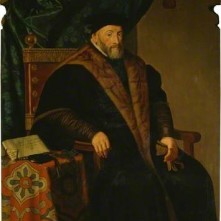



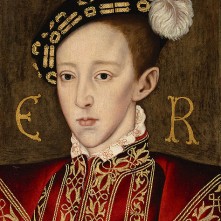
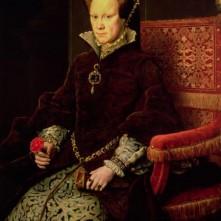
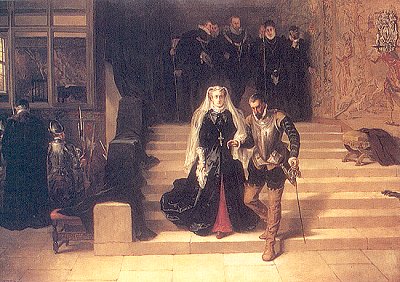
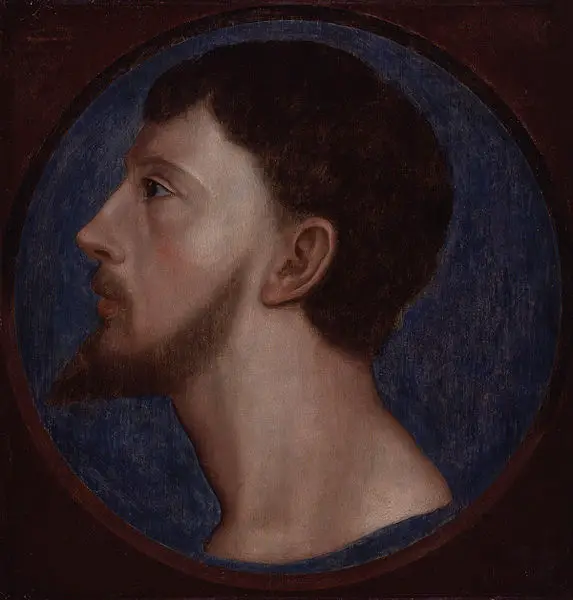
Leave a Reply